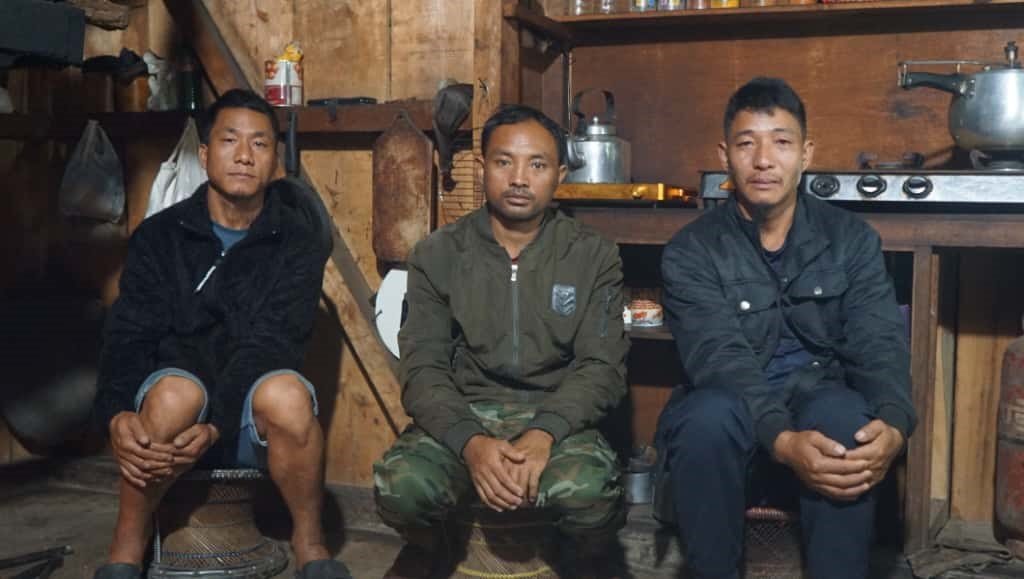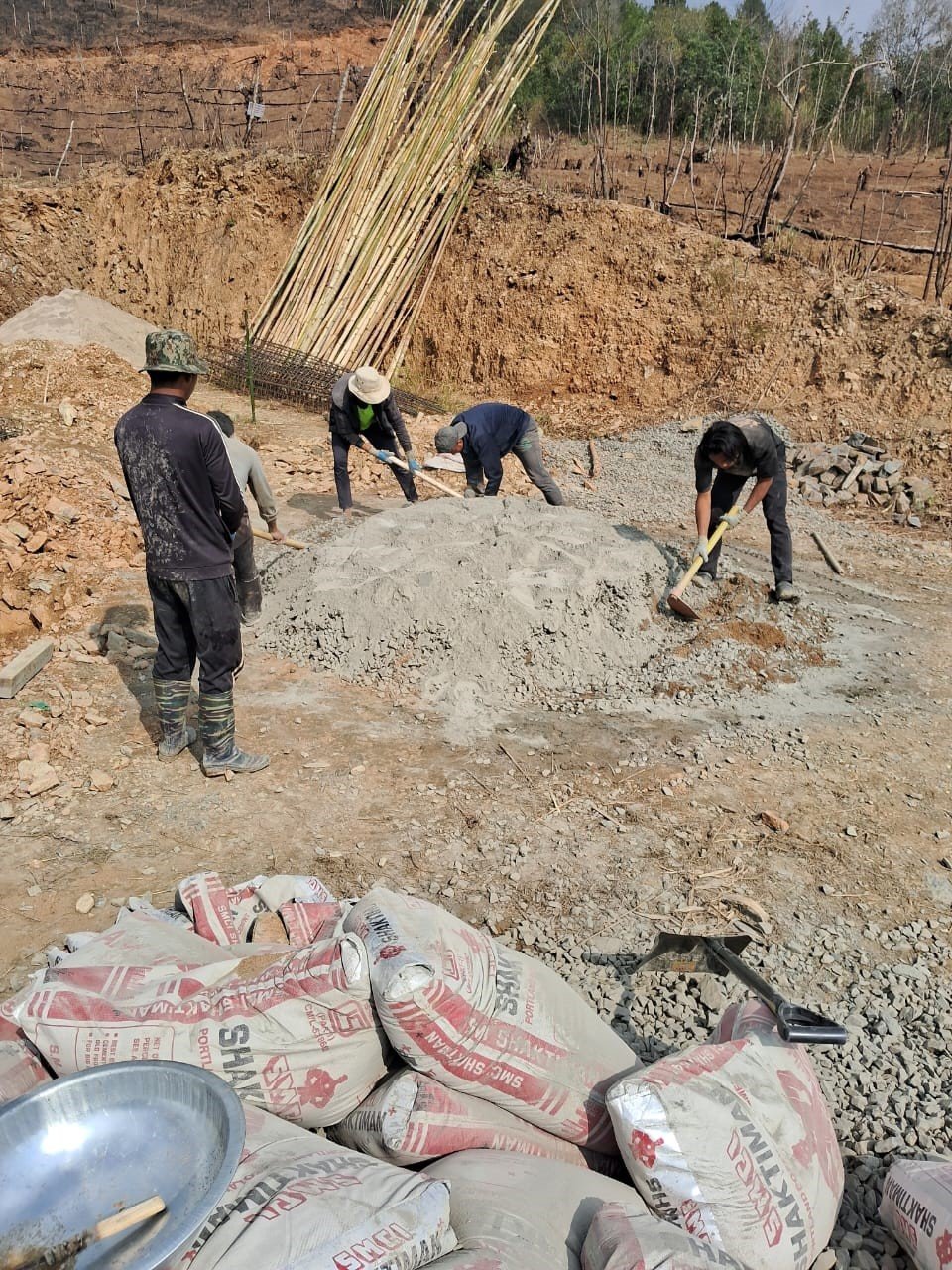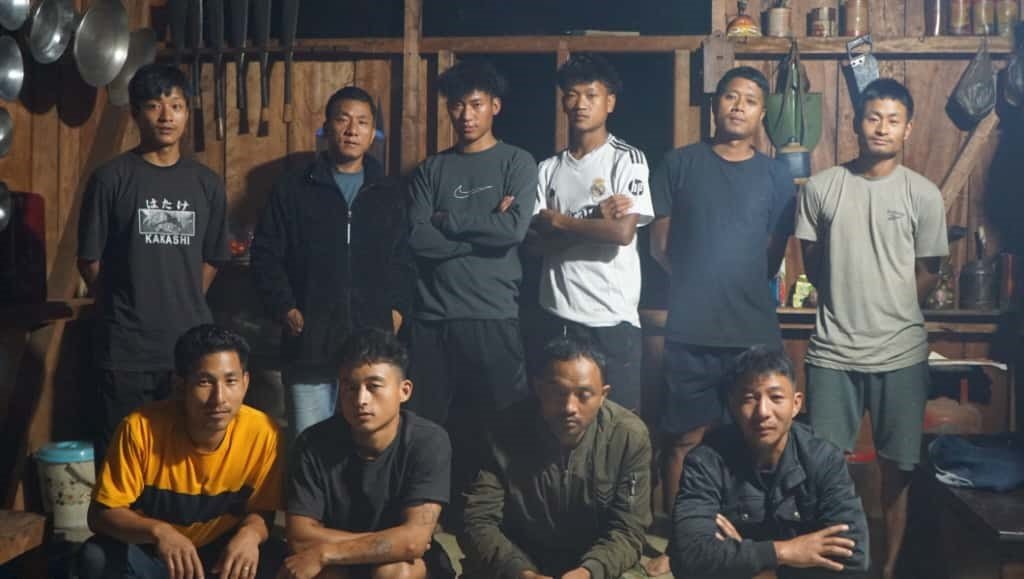Amid the rising dust of a construction site in the eastern district of Noklak, three men stand as silent architects of progress. They are the head masons, the unseen pillars who give shape to other people’s dreams while quietly carrying the weight of their own. Their hands are calloused by years of toil from the clutter of tools and mixing cement.
Meet L Shangjiu, aged 41 and father of two children, 40-years-old L Lumong, a father of six, and Yantsumong, 41 years and father of four. These three men are bound not by blood, but by shared struggle, sweat and passion for their trade.

Each of them got into masonry nearly 10-15 years ago by carrying bricks, mixing cement, learning by watching elders and senior builders. They had neither degrees nor formal technical expertise but possessing only a resolve to survive and provide. With the passage of time, their hands learned the language of precision and estimation, how to measure, align and perfect a wall so that it would stand tall against time.
Download Nagaland Tribune app on Google Play

Years later, they have become the head builders by their own right, supervising young boys who are willing to learn and earn- from guiding them the right way to hold a trowel, to cultivating the patience to let wet cement rest. They have formed a group for about 10 years now, and they take up construction projects in Noklak and neighbouring districts as well. However, that does not make life in the construction sector tranquil- it remains often uncertain.
“There is not much tension if we get paid on time. But when payments are delayed for weeks or even months, that’s when we face difficulty, especially when we have to pay the labourers or daily wage earners who work with us,” one of the trio points out.
Late wages not only affect their daily needs but also brings emotional and financial stress as each of them has a family waiting at home – wives and children who depend on their earnings.
“We think about our families everyday,” shared Shangjiu. “No matter how long we have to stay away from our family, our thoughts are always with them, wondering what they might be eating or how they are doing,” he added.
For Lumong, it is faith that keeps him going. “We work here at the site, but our hearts are always at home. I only pray that my family is doing well when I’m away,” he says.
Besides their profession as construction workers, these men are true family men. They make sure that there is roof over their heads, food on the table, and education is given to their children.

With each project, these builders often stay from home for 5-6 months or even more on the ongoing construction site. With 10-12 labourers under their supervision, they build temporary shelters near construction sites where they cook and eat together and live like a small community. “We eat whatever we have – tasty or not- but we enjoy our meals together”, they shared.
What sets these men apart is that, they really take pride in maintaining strict discipline at work. “None of us drink or take intoxicating substances,” said Yantsumong. “We stay focused, cooperate with one another, and begin every day with prayer. That’s what keeps us united,” he adds.
Though grateful for work opportunities, they pointed out the lack of proper safety kits in Nagaland. They neither work with proper gloves nor safety helmets, proper boots or jackets, but make-do with simple everyday clothing.
“For masons, we do have labour cards, which are helpful since our children can apply for scholarships,” they explained. “But sometimes, those applications get rejected, and most of us still don’t have access to proper safety gear,” they added.
Despite the hardships, their vision remains simple yet powerful.

“We don’t dream big for ourselves,” they expressed. “Our only dream is to give our children good education so they don’t have to struggle like us,” says one of them, while the other said,” I don’t want my son to carry bricks like me, I want him to build dreams with pen and books.”
These builders take immense pride in their work. Every building they complete becomes a silent testimony of their endurance.
“Sometimes I walk past a house I helped to build. No one knows my name, but I know every corner of that wall. There is a sense of satisfaction there,” says Lumong
They treat each structure as a piece of art, balancing stone and sand, strength and beauty. Through the heat, dust, and rain, they stay grounded, knowing what they build shelters others.

At a time when unemployment continues to rise in the state, they have a message for young people: “Don’t think that manual labour is below your dignity. Every kind of work has value. Education is important even in construction — we need literate youths who can read and understand technical papers. Don’t wait for big jobs, start small and work hard”.
This is not just a story of these three men; their story represents each construction worker in a small town to big cities and beyond. Through their lens, we get to see a labourer somewhere who is also building this life brick-by-brick to become leaders in the field of construction. They may not own companies or sign blueprints, but their hands have built many schools, churches, homes and walls.
– This is the second of a four-part series of reports on the construction sector in Nagaland written as part of the Kohima Press Club-Nagaland Building and Other Construction Workers Welfare Board (KPC-NBOCWWB) Media Fellowship 2025

